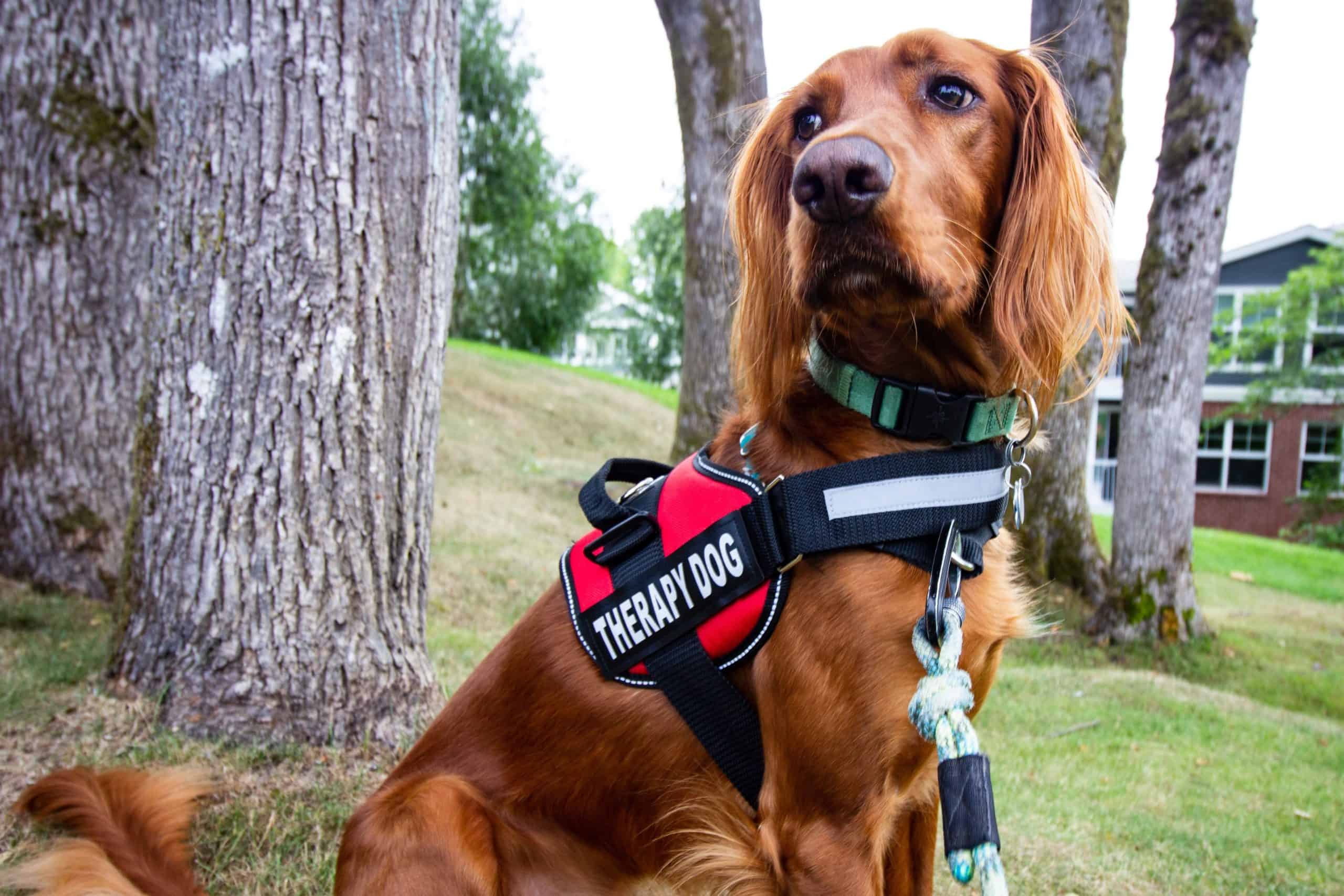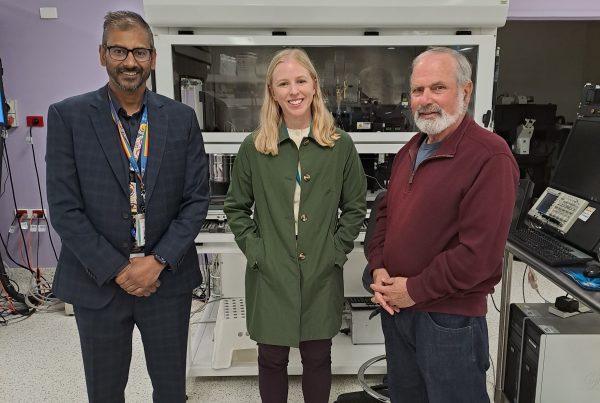Living with Cystic Fibrosis can be a challenging and isolating experience. Managing the emotional toll of the genetic condition can be just as daunting as managing the condition itself. This is where therapy pets come in.
Rachael, 35, is a stay-at-home dog mum and a volunteer obedience instructor at her local dog obedience club. As someone who has lived with Cystic Fibrosis (CF) since she was diagnosed at just 2 weeks old, she understands firsthand how challenging it can be to “fit in” to society with a chronic condition. Rachael missed out on many typical experiences throughout her teenage and early adulthood years, due to frequent hospitalisations and flare-ups.
“Not being able to go out and party with friends and do those normal things that teenagers and young adults do was difficult,” Rachael says. “The sense of having no life outside the hospital, the treatments, and the flare-ups… I missed all those ‘normal’ things people do from the age of 16 until 22. I would spend more time in hospital than out of hospital. It can be very isolating.”
Rachael has since found solace in the simple things that bring her joy, including spending time with her dogs. Whether taking them for a walk, playing with them at the local oval, or cuddling with them while watching a movie, her dogs have been her constant companions through the ups and downs of living with Cystic Fibrosis. Rachael has also found having a service dog to be incredibly helpful. She is consequently training one of her dogs to be a therapy pet for herself, to help her manage PTSD, anxiety, depression, and panic attacks.

Service dogs (also known as therapy dogs), can benefit people with Cystic Fibrosis by encouraging physical activity, which is essential for lung health. Dogs need to be walked, and playing with them can help build a relationship between the dog and its owner. Therapy dogs additionally provide comfort and companionship when the person with CF feels unwell.
Having a furry friend by her side during hospital visits and challenging mental health days has also helped to keep Rachael grounded, “I’ve had many traumatic experiences in hospitals, which is where I need a service dog the most. Having a dog around, especially when having a bad day with my mental health challenges, helps a lot. They keep you grounded. And that unconditional love and companionship they have to offer goes a long way.”
Service dogs/pets have a wide range of things that they do. They can alert their owners if they’re about to faint, have heart rate spikes, seizures or experience diabetic hypoglycemic attacks. Service dogs can provide emotional support for people with chronic illnesses and those suffering from PTSD, or panic attacks. Some can even help people who are unwell with their day-to-day activities, such as opening doors, turning lights on or taking socks off.
The comfort and companionship that therapy dogs offer, along with their ability to motivate exercise, and assist with daily activities, makes them ideal companions for those living with Cystic Fibrosis.

Meanwhile, Daniel has also discovered the benefits of having a therapy pet to help manage life with Cystic Fibrosis. During his recovery from a lung transplant, spending time with his cousin’s cat provided a much-needed source of comfort.
Daniel says, “My cousin had dogs and a cat, and being able to cuddle the cat was a highlight for me during my recovery. It’s just nice to come across an animal when you’re feeling unwell. It boosts your mood.”
Inspired by his experience during recovery, Daniel has since taken up cat-sitting and foster caring. “I don’t feel like I can work part-time or casually, but foster caring for cats was something I was able to do. It’s worthwhile, giving me a sense of fulfillment. Cat sitting is also the same; it gives me a great sense of purpose when I can’t work.”
Therapy pets can sense when their owners are not okay and take it upon themselves to provide comfort and support. By providing emotional support, companionship, and a sense of purpose, therapy pets can be a lifeline for those who are struggling with a chronic condition like Cystic Fibrosis – they can make a real difference in the lives of those who need it most.
The views, experiences or comments shared on this website are not medical advice and may not reflect opinions or beliefs of Cystic Fibrosis Community Care. Always seek the guidance of your doctor or other qualified health professional with any questions regarding your health.




